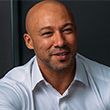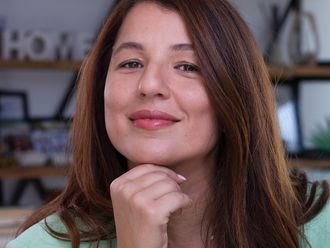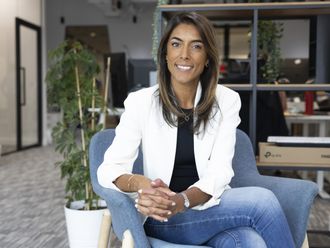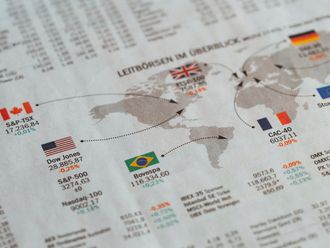Dubai: Growing up in sport-centric household and being sporty himself, Dean Henry, 48, had set his sights on a career as a professional athlete when a knee injury and other health scares forced an end to his dreams. But it only sparked a passion for nutrition and an entrepreneurial career.
“A misdiagnosed knee injury led to multiple surgeries, and soon after, a diagnosis of an esophageal condition hindered my ability to swallow food properly. These health setbacks, combined with my daughter's nut allergy from birth, left me unsatisfied with conventional healthcare advice,” Surrey-born Henry told Your Money.
“This dissatisfaction prompted me to dive into ‘functional medicine’ and ‘therapeutic nutrition’, where I explored the root causes of health issues, anxiety, and the importance of gut health. This helped me better manage my own challenges, and also, in some cases, find solutions to these issues.”
Since 2016, Henry got involved in six wellness ventures by advising, investing in, or creating the companies across the UAE, Europe, and the UK. He co-started Dubai-based ‘UAE Peptides’, which makes natural amino acid supplements, and ‘The Clean Living Co’, a healthy bone broth brand, this year.
Still actively involved in five out of six health ventures
“I have been and still am involved in six health venture start-ups. I currently have an active role in five of them, while in the sixth, I maintain a financial interest but not an active role. All businesses, except one, involve partners,” the British certified functional medicine coach said.
While ‘UAE Peptides’ - started in May - is not a solo venture, Henry said he is the only active managing partner. “The other partners are not directly involved in day-to-day operations, but we do talk frequently. In this particular venture, we have one key partner who serves as our backer and investor,” he added.
The start-up initially cost about Dh400,000, he revealed, which went into establishment, retainers, and marketing, before covering all overhead costs. Aside from overheads, Henry added that about two-thirds of this initial start-up cost was set aside to procure stock after the fourth month.
“Over the initial four months, the business’ revenue amounted to about Dh190,000. In the subsequent month, we nearly doubled our previous best-performing month, achieving an approximate 25 per cent gross profit,” he revealed.

In health and supplement trading, there are challenges, especially as health authorities are now more cautious than ever
Reinvesting profits into firm before seeking external funds
“Achieving financial self-sufficiency for a marketing-driven venture quite early does not mean we would not consider approaching our partner for more capital, but our objective remains to expand through reinvesting profits back into the business, thus minimising need for external capital.”
As managing partner, Henry said the main goal will be to continue growing the business and to expand across the Middle East. “While our primary intent is to fuel our expansion through reinvesting company profits, our ambitious plans may necessitate further capital investment,” he added.
“In health and supplement trading, there are challenges, especially as health authorities are now more cautious than ever, ensuring products sold to the general public are backed by health certifications and laboratory tested, proving the products and their ingredients are safe for use.
“This is time-consuming, as many facets have to be considered, particularly when dealing with internationally manufactured products. The second challenge is managing cash flow while maintaining adequate stock, which is crucial as stock shortages lead to losing customers quickly.”
“Being patient and driven for future success can be a difficult challenge, and it may not be possible to master completely. I learnt to celebrate the small wins and then move on to the next challenge. The second, and very common challenge, is finding the work-life balance,” he added.
“It's easy to overwork when growing a business, but you have to set a cut-off time, a timetable, take breaks, and remember there is always tomorrow. My wife often reminds me the world will not end because I've put my phone down for a few hours or taken a day off every now and then.”
How would you grow your personal savings by investing?
When asked how he goes about investing and growing his personal savings, Henry pointed out that as his income varies significantly, he has to have a fixed amount set up on a direct debit for investing in stocks and shares of blue-chip companies.
“This approach, proven over time, delivers consistent returns, albeit with periodic fluctuations. There will always be peaks and troughs, but hanging in there and staying invested over a 10-year period can yield substantial gains,” he added.
(What are blue chips companies? In the investment world, a blue chip company is well-known, well-established, and well-capitalised. Such a company has a long track record of steady growth is considered to be a leading company in its sector.)
“I still explore opportunities in property investment whenever my savings allow me, diversifying my portfolio and exploring new avenues for financial growth,” he said, when describing his investment plans. Henry, whose wife and kids are in Spain now, said he keeps shuttling between Ibiza and Dubai.










